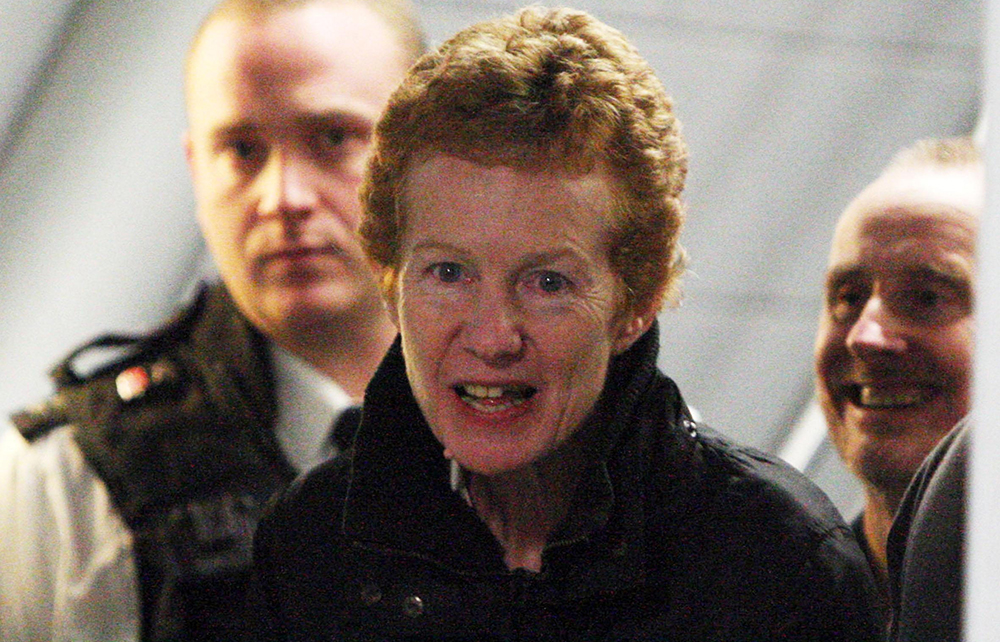‘I can’t quite believe I’m here, having a steak dinner with a killer,’ writes Jenny Kleeman, as she sits with a hitman for the big opening to her book about the price we put on life. Someone paid to take lives is about to spill the beans on his dark trade. There should be tension. There should be jeopardy. We should be worried about Kleeman’s safety. So why does it feel a bit flat?
It is difficult to find a hired gun, obviously. This one is John Alite, who was ‘a hitman for the Gambino dynasty’. However, he is now ‘a motivational speaker’ and ‘host of several podcasts’, and seems a lot more podcaster than hitman. Kleeman writes that he went to prison after he ‘pleaded guilty to charges that included two murders’. But when he talks about his sentence, she says ‘some of his numbers don’t stack up’. She also says it ‘would be naive to take this former gangster at his word’. We get no satisfactory price for a hit. He tells her he ‘probably shot 40 men’, but didn’t keep track of how many died. The steak dinner is not a success.
The next chapter frustrates too. Kleeman visits an F-35 factory in Texas to meet the publicist, take a tour and speak to some of the workers. From my experience, good stories rarely come from such visits. She uses the section to debate the cost of the planes, but that has been done elsewhere at length. She tries to dig into missions on which the fighter jets have been used, wondering who they have killed. Unfortunately, we don’t get close to knowing names or their stories. If I’d been editing this book, I’d have ditched these opening pieces.
But when Kleeman tells the story of a London mother whose son was stabbed, she gets the access and time to tell it properly: the knock at the door; the police; the poor mother wetting herself as she tries to get dressed; the prayers. There is a brilliant clash in tone as Kleeman moves from grief to money, in the form of civil servants and a report calculating the average economic impact of such a murder: ‘£254,710 in lost output from average unearned wages.’
The book continues in this pattern, exploring case studies and digging into how the price of each life was evaluated. It is divided into six parts: the price of taking a life, the price of a life lost, the price of a life created, the price of saving a life, the price of a human body and the price of a human being.
This last includes the story of Rachel Chandler’s brother finding out how much he will have to pay Somali pirates to return his kidnapped sister unharmed. In a wonderfully matter-of-fact style, Kleeman describes Stephen Collet at home in Suffolk as he negotiates with a man named Ali:
Ali went down to $500,000. Stephen went up to $165,000. Ali went back up to $800,000. Then $1.5 million. Then $2 million. Stephen stood firm at $165,000.
For a year he haggled over his sister’s life. Collet tells Kleeman:
It becomes like throwing numbers around. You have to be quite brave in your language and say, ‘Well, if they die, they die’, that sort of thing.
In the end he paid $440,000.
The best and most uneasy section is about the price we are willing to pay to keep children alive. Again, Kleeman has good access and uses it well, introducing a one-and-a-half-year-old boy, Edward, who is on the carpet in his home. She then explains how we decided whether he should live or die:
He is here, pushing buttons on his noisy books, throwing us fist bumps and eyebrow wiggles, thanks to a single dose of a life-saving drug that cost £1.8 million.
At about two months old Edward became a bit floppy and was moving less; then he stopped breathing. His father gave him mouth-to-mouth, and doctors resuscitated him, but they found he had spinal muscular atrophy (SMA), a disorder of the nerve cells. ‘So I’m losing him, I’m losing my baby,’ his mother said to the neurology team. Until 2016, writes Kleeman, there was no treatment, and that might have been the case. Now there are options, including Zolgensma.
The drug cost six times the price of the home Edward lives in, so his family started to crowdfund, hoping to send their child to the US for treatment. They raised some money, but not enough. Then the drug was approved on the NHS. The family cried with joy, until an hour later when another parent who had a child with SMA texted: ‘I don’t think Edward will be eligible.’ He was over the age limit. Edward’s mother went on television to make her case. The rule was changed so that decisions for older children would be made case by case. Edward got his dose.
The price was right, we, as a society, decided. Edward’s story reminded me of a girl I knew who had a tumour. Her parents appeared in the local paper and crowdfunded to send her to America for experimental treatment. It wasn’t clear it would help, but we gave some money. We could have given more, of course. We could have sold our house, but we didn’t. We didn’t even forego our holiday. If she had been our own daughter we would have. This uncomfortable reflection on the price of life is what Kleeman’s excellent book confronts us with.






Comments